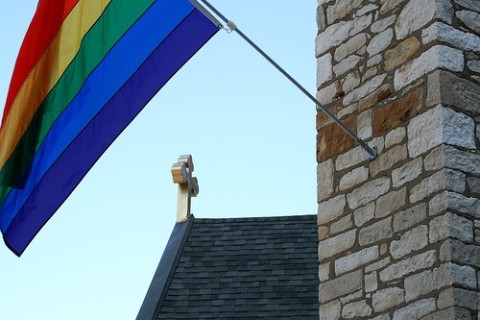Married or not: Standards for gay clergy

Last summer, the churchwide assembly of the Evangelical Lutheran Church in America decided that synods could ordain homosexual clergy. Gays in the ELCA no longer need to be celibate in order to be ordained. The ELCA was specific in its formulation: it would allow ordination of persons who were in "publicly accountable, lifelong, monogamous" same-gender relationships.
Since legal matrimony remains unavailable in most states, the ELCA was in effect declaring that it would recognize gay partnerships even if the state didn't. That was welcome news for pastors like Mary Albing in Minnesota, who otherwise was barred from being on the ELCA clergy roster.
At the same time, the decision sets up new issues for the church's bishops: how will they hold gay pastors who aren't married accountable to the standard of monogamy and lifelong commitment? Do same-sex couples have to prove what is taken for granted in the case of married heterosexual couples? Is there a double standard now at work in the case of evaluating gay partners?




